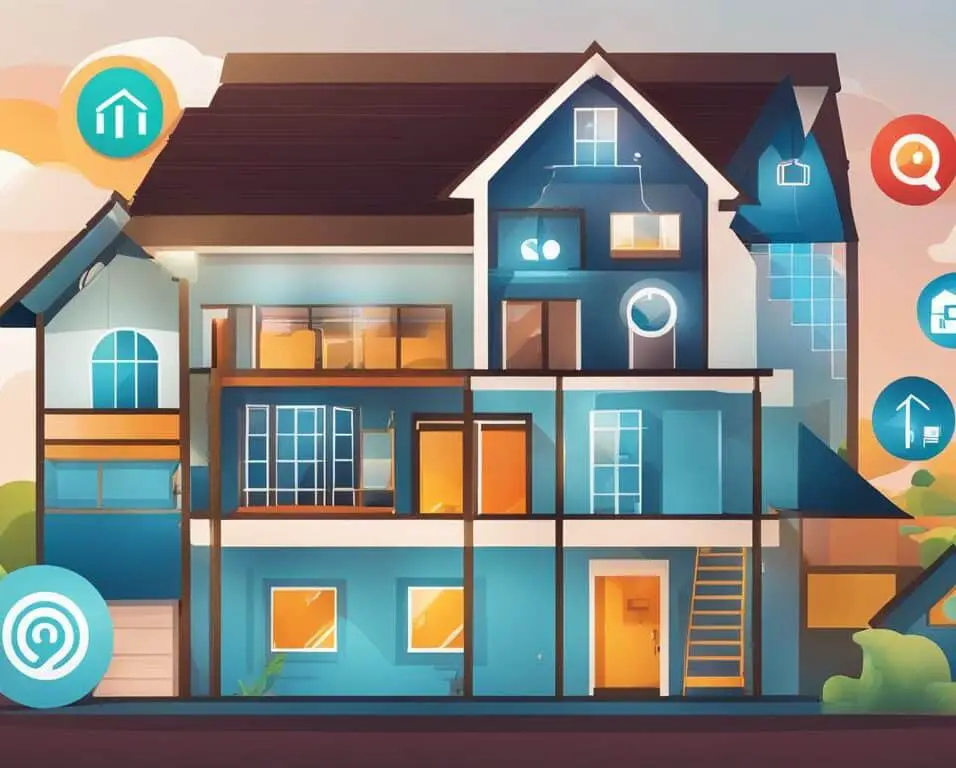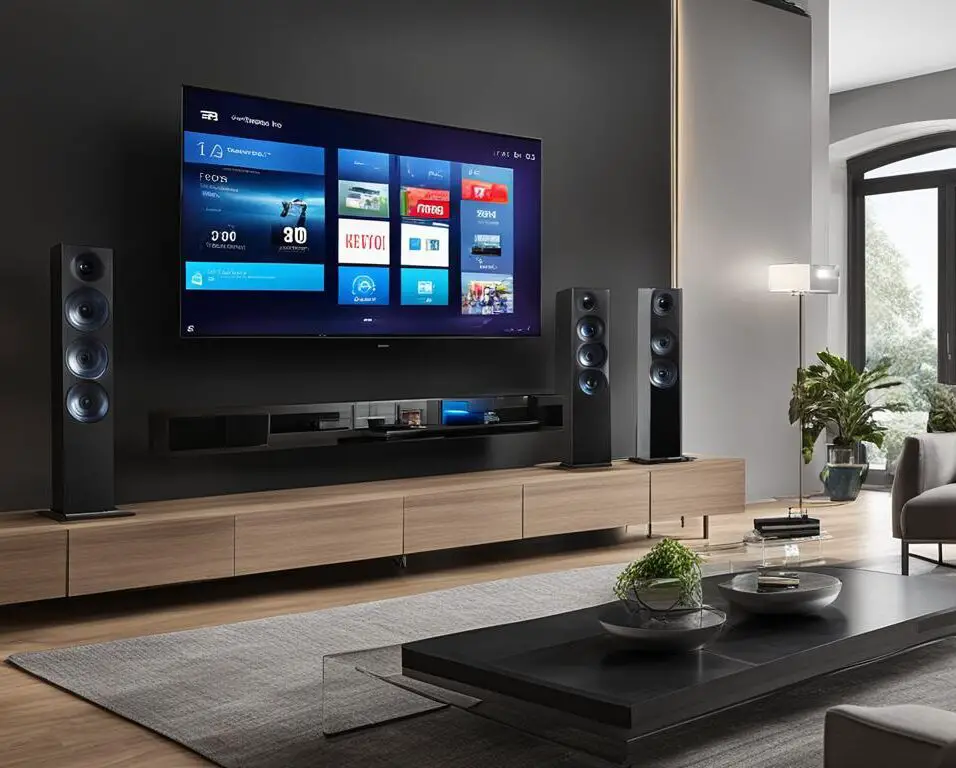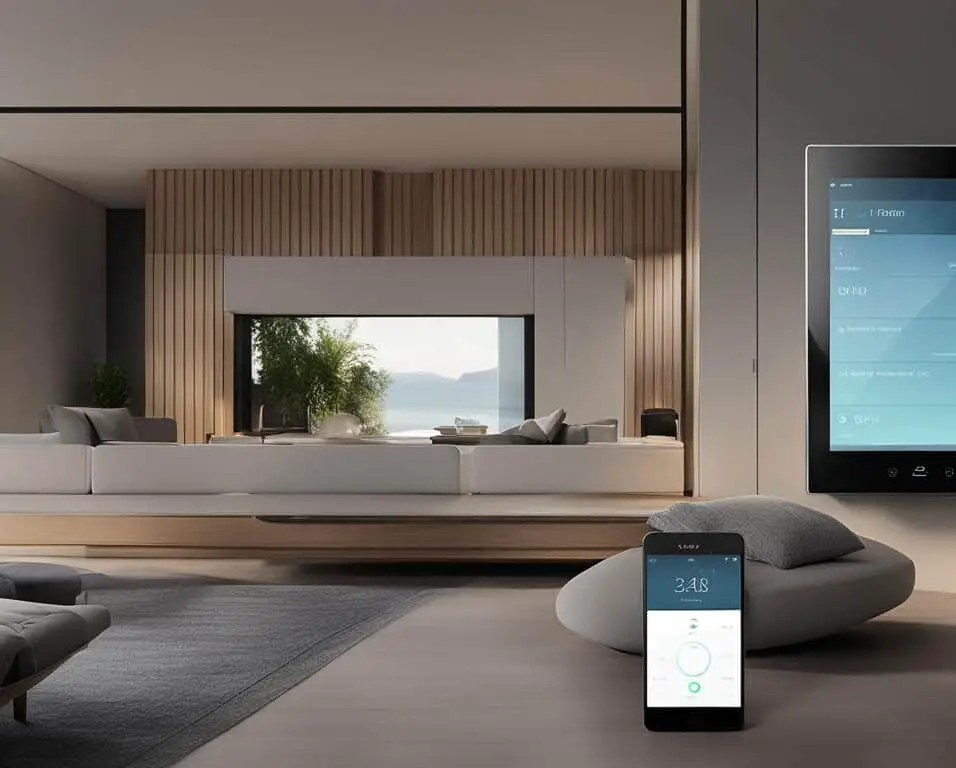Future Predictions: The Next Big Thing in Smart Homes
The smart home industry has experienced significant growth in recent years, with technology continually advancing. According to Zion Market Research, the market is predicted to reach $53.45 billion by 2022. In 2018, devices like Google Home, Alexa, and Amazon Echo became more common, setting the stage for increased adoption of smart home technology. Experts from Forbes Technology Council have shared their predictions for the future of smart homes, including a focus on security and privacy concerns, integration of smart home devices, the role of artificial intelligence, surveillance and appliance advancements, new use cases, and homeowner data sharing.
Key Takeaways:
- The future of smart homes will involve enhanced automation and connectivity
- Artificial intelligence will play a crucial role in personalizing smart home experiences
- Improved security features will provide homeowners with peace of mind
- Sustainability and energy efficiency will be key considerations in smart home design
- Data security and privacy concerns must be addressed to ensure user trust
The Smart Home of the Future: Enhanced Automation and Connectivity
The smart home of the future will revolutionize the way we live, with enhanced automation and connectivity. Integrating artificial intelligence (AI) into the Internet of Things (IoT) ecosystem will create a seamless and personalized experience for homeowners, making their lives more convenient and efficient.
One of the key advancements in the smart home of the future is improved security features. With AI-powered facial recognition and activity detection, homeowners can ensure enhanced safety and peace of mind. These security features will not only provide protection against intruders but also enable personalized experiences. For example, the smart home system can automatically adjust the lighting, temperature, and entertainment preferences based on who is present in the house.
Sustainability and energy efficiency will also be at the forefront of smart home technology. Homes will be equipped with smart energy monitoring systems that allow homeowners to track and control their energy usage. AI algorithms will optimize energy consumption, making smart homes more environmentally friendly and cost-effective.
Furthermore, voice control technology will become more advanced, enabling homeowners to interact with their smart devices using natural language commands. This hands-free control will make it even easier to manage various tasks and control different aspects of the home, from adjusting the temperature to controlling the entertainment system.

In addition to these advancements, augmented and virtual reality will likely play a role in enhancing the smart home experience. Homeowners may be able to use augmented reality to visualize how different changes in the home decor or furniture placement would look before actually implementing them. Virtual reality could also be incorporated into entertainment systems, providing an immersive experience for gaming and virtual travel.
The smart home of the future promises enhanced automation, improved security features, personalized experiences, sustainability, energy efficiency, voice control, and even augmented and virtual reality. As technology continues to advance, our homes will become smarter and more connected, making our lives easier and more enjoyable.
Ensuring Data Security and Privacy in Smart Homes
As the adoption of smart homes continues to grow, so do the concerns surrounding data security and privacy. With the Internet of Things (IoT) devices becoming an integral part of our daily lives, it is crucial to address the potential risks and take necessary precautions.
Hacking and breaches are major concerns in the smart home industry. As connected devices collect and transmit data, they become vulnerable to malicious attacks. Homeowners must prioritize data security by implementing strong passwords and regularly updating security patches on their smart devices.
The need for standardization and regulation in the smart home industry cannot be overstated. With a lack of consistent practices, data security and privacy can be compromised. It is essential for industry stakeholders to collaborate and establish guidelines to protect consumers’ personal information.
One area that raises particular privacy concerns is voice assistants. While these devices provide convenient hands-free control over our smart homes, the always-listening feature can be unsettling. Homeowners should be aware of the data being collected and have control over its usage. Understanding the options for managing and deleting data collected by voice assistants is crucial in maintaining privacy.
FAQ
What is the predicted future of smart homes?
The future of smart homes will involve a fully integrated ecosystem, where devices seamlessly communicate with each other. Advancements in artificial intelligence will enable homes to learn about their residents and automate tasks based on their preferences.
What are some of the enhanced features expected in smart homes?
Enhanced security features, such as facial recognition and activity detection, will provide homeowners with peace of mind. Smart homes will also prioritize sustainability and energy efficiency, allowing homeowners to monitor and control their energy usage. Voice control technology will become more advanced, making it easier to control smart devices using voice commands. Additionally, augmented and virtual reality may play a role in enhancing the smart home experience.
What are the concerns regarding data security and privacy in smart homes?
As smart homes collect and share large amounts of data, data security and privacy become significant concerns. Homeowners should understand what data is being collected and how it is shared. Securing smart home devices with strong passwords and staying updated with security patches is essential to prevent hacking and breaches. Standardization and regulation in the smart home industry are needed to ensure consistent data security and privacy practices. Voice assistants, although convenient, raise concerns about privacy due to their always-listening capabilities. Homeowners need to be aware of the data being collected and used by voice assistants and understand their options for managing and deleting data.








